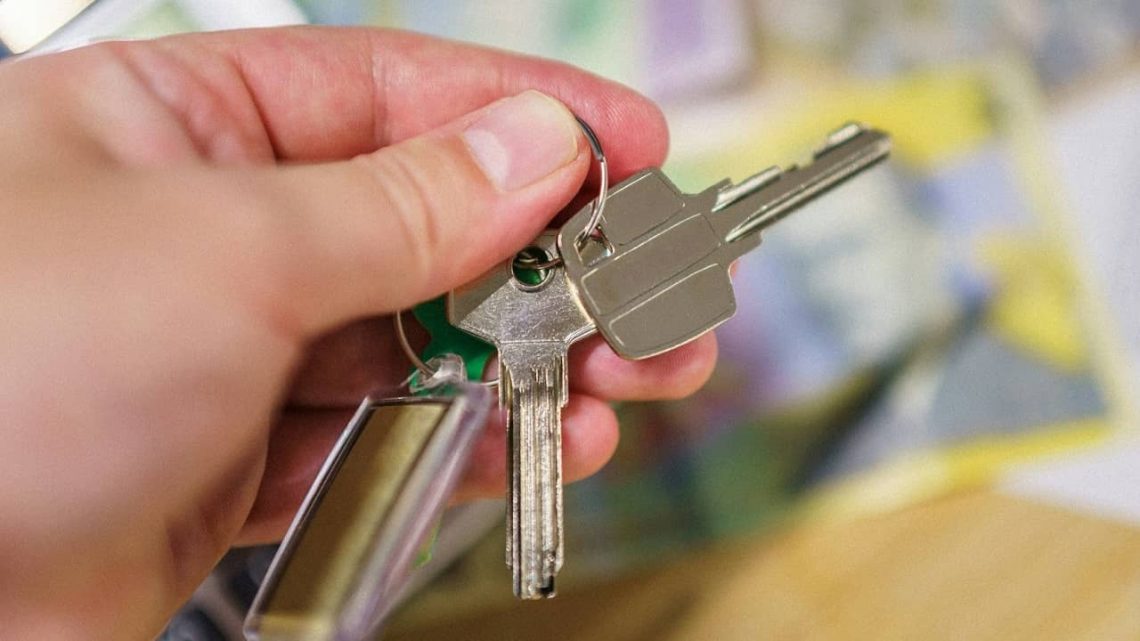We all have dreams of owning our own business but it feels too much work to start one from scratch. If you are in the same situation, you should buy a Turnkey business. But what is a Turnkey business you ask? well, today we will talk about that. We will also explain what are the pros and cons of investing in it.
What is a Turnkey Business?
Turnkey Business is a business that is ready for immediate operation, allowing a new owner to start running things from day one.
The term “turnkey” comes from the idea that you only need to turn the key to unlock the doors of the shop or the machinery and start making and selling things. Imagine walking into a fully set up shop, with everything in place. It is essentially a pre-packaged business opportunity.
Here are some characteristics of a turnkey business:
- Proven Business Model
- Ready-to-Use Systems
- Standard Operating Procedures
- Established Customer Base
- Marketing Materials
Here’s how it works: the old owner will transfer you all the inventory, agreements, permits, employees, Intellectual Property, customers, and marketing plan. After the acquisition, you just have to follow the same things and you will get the same output as the previous owner did. You can make it better later but you don’t have to worry about all of the above.
One of the misconceptions that we must clear here is that you can’t just buy it and think everything will run the same way while you are chilling at home. You are not an investor, but the owner now. You have to give the same amount of time and do the same work that the old owner was doing. Maybe you have to be more hands-on for the first few weeks to know what’s happening in there.
Is Franchise a Turnkey business? What’s the difference?
The most common example of a turnkey business is a franchise. In the case of a franchise, the franchisee will get access to all the key features we talked about. They just have to pay the fee to make it operational. You can get franchises of popular chains like Tim Horton’s or Subway.
But this is not limited to franchises. Maybe you find an existing business where the owner is looking to retire or move on to something else. For example, there can be a restaurant near your house wherever the owner is moving to someplace else, so he wants to sell it. Here you can swoop in and buy the whole thing from them to make it yours. You can invest in websites like e-commerce stores too.

There are some key differences between a franchise and a non-franchise turnkey business:
- You can change processes, products, or marketing in other turnkey businesses, but in a franchise, you have to work under the strict guidelines given by the franchisor.
- Franchisors provide training and support about the business, while in the other case, you might not get it.
- Franchisors take royalty or licensing fees regularly even after the initial investment, while in other turnkey businesses, there is just a one-time purchase price.
This will make things more clear on what type of turnkey business is most suitable to your needs. The global franchise market is expected to reach 279 billion dollars by 2032. Franchises are not going anywhere. But if you want to like things your way only, then they are not the right option.
Are Turnkey Businesses Profitable?
In most cases, turnkey businesses are profitable. Since such businesses were already running, the operations were already defined, the product was already in the warehouse, and the customers were also buying it. So, when you take over, you can start selling the product and get the money in your pockets.
According to Guidant Financials report, around 65% of small businesses are profitable in the USA.
However, there is no guarantee that the business will continue to be profitable forever. Maybe that’s why the owner is selling it. So, you have to analyze and look for any new opportunities to grow it. The profitability may vary by industry and current market conditions.
Get the best price for your business — we take care of the rest.
Start Selling for FreePros of Buying a Turnkey Business
Let’s dive into some of the awesome advantages that come with this ready-to-go option:
1) Proven Business Model
One of the key advantages of a turnkey business is that you’re buying a business model that’s already been tried and tested.
Someone else has already figured out the best product/service for the market, how to manage it and sell it. This also means you don’t have to spend time inventing the product, hiring the workers, and getting the permits.
Your job is now to just supervise the operations or focus on how you can improve things in the business. You can build new products, streamline the process to make it more efficient, or find new ways of marketing. You can work on SEO or social media to bring in new customers.
2) Immediate Cash Flow
Not just that the business is there, the money is also there. Since the buyer can instantly start the operations, he/she will start making money and get the cash flow running.
When you are building your startup, you have to wait for months to see profit because it takes time to reach the customers. But if you buying in a Turnkey business, your revenue and profit are already there. You can keep the profit or you can look for new ideas to reinvest it in the business.
3) Established Customer Base
Last but not least, one of the relaxing things is that you do not start with zero customers. The turnkey business you were buying already has a pre-existing customer base. You also have the data about their demographics and their contact details.
Receive an instant valuation with our Ecommerce Business Valuation Tool.
Get My ValuationConsider These Cons Also
While turnkey businesses offer many advantages, it’s important to be aware of some potential drawbacks:
1) Higher Initial Costs
If the business is already generating revenue and profit, the seller will ask for more money. Know that you’re not just buying equipment or inventory; you’re purchasing an established brand, customer base, and proven business model.
Finding the right value is also a complex task. We recommend hiring a professional for such work. However, for an initial number to start with, you can check our business valuation calculator which can give you an estimated value in 5 minutes.
For a small business, you should look at SDE to estimate the right value to buy it.
2) Limited Flexibility
If you are a creative person who wants to do everything according to yourself, then the turnkey business might turn you off. As we said, the operations are already defined, and the product is already made, you can’t do much tinkering with it. You’re stepping into someone else’s vision.
Of course, you can improve all the things but it will take time and you have to think about existing employees and customers before implementing anything new. We advise you to make changes after some months. If you do them instantly, maybe the customers will abandon the business or employees might get unhappy as they are accustomed to the old ways.
3) Inherited Problems
This is something that most beginners fail with. When you buy a turnkey business, you’re also now responsible for any existing issues like dealing with employees, maybe the equipment needs repairs, or problems with suppliers. There can be cash flow problems too.
Even after thorough due diligence, you might miss something. It happens to everyone. So, you must have to fix these problems even if you think you haven’t created any of them.
Our AI recommends the best listings based on your investment profile.
Discover MilesHow to Buy a Turnkey Business?
After learning about the pros and cons, you know what you are stepping into. So, the next step is to buy a turnkey business.
The first thing is to look out for such businesses available for sale. There are many marketplaces where you can find those. Ecomswap also has many online businesses listed that you can call a “turnkey” business because you can start making money out of them from the first day. We recommend you invest in the niche that you are passionate about.
But before you start dreaming about the returns, look into the company’s financial health, assets, permits, and any legal liabilities. Then, you should also examine the terms of the transfer agreements to see what you are getting.
One important tip would be to check whether the business is too dependent on the current owner or not. If yes, then that’s a red flag. There are so many other important questions to ask like who are the competitors, what is the Intellectual Property included in the deal, and why is the current owner selling it.
At last, even if everything is ready-to-use, you must ask the seller for some support for the first week or month. This will make you more familiar with the current operations and you might gain some new insights out of it.
Conclusion
So, buying a turnkey business is an easy option for anyone who wants to become a business owner without building one from the ground up. But if you are still confused, we have an easy guide on how to buy an online business to get started with.





